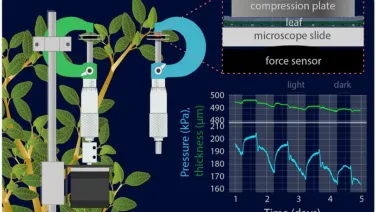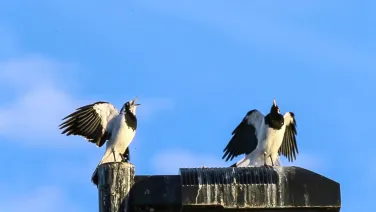News
News
Find out the latest news, announcements and stories about Biology at ANU.
Find out the latest news, announcements and stories about Biology at ANU.

Scientists from ANU and James Cook University have identified an "exquisite" natural mechanism that helps plants limit their water loss with little effect on carbon dioxide intake - an essential process for photosynthesis, plant growth and crop yield.

How do you tell if your plants need water? Recently, I asked this question of a group of about 40 biologists at the Australian National University.

A new study shows Australian magpie-larks may use a ventriloquial illusion to make their vocal duets more threatening.

To measure the speed of adaptive evolution in the wild, we studied 19 populations of birds and mammals over several decades. We found they were evolving at twice to four times the speed suggested by earlier work.

The raw material for evolution is much more abundant in wild animals than we previously believed, according to new research.

Professor Ute Roessner AM from The Australian National University (ANU) has been recognised for her exceptional work advancing knowledge in the field of science. She joins 21 other newly elected Fellows to the Academy of Science.

The biologists and the linguists at ANU might sit on different sides of the campus, but Professor Lindell Bromham from the ANU Research School of Biology says it wasn’t difficult to see the benefits in the two disciplines coming together.

Meet the PhD researcher exploring how bacterial proteins could hold the key to reducing our reliance on fossil fuels.

Researchers have discovered why malaria parasites are vulnerable to some drug therapies but resistant to others, offering scientists another piece of the puzzle in the global fight against the disease.

Mention the superb lyrebird, and you’ll probably hear comments on their uncanny mimicry of human sounds, their presence on the 10 cent coin, and their stunning tail. Far less known – but equally, if not more, impressive – is the Albert’s lyrebird.

Death cap mushrooms don’t actually want to kill us. In fact, mushrooms don’t care about us at all.